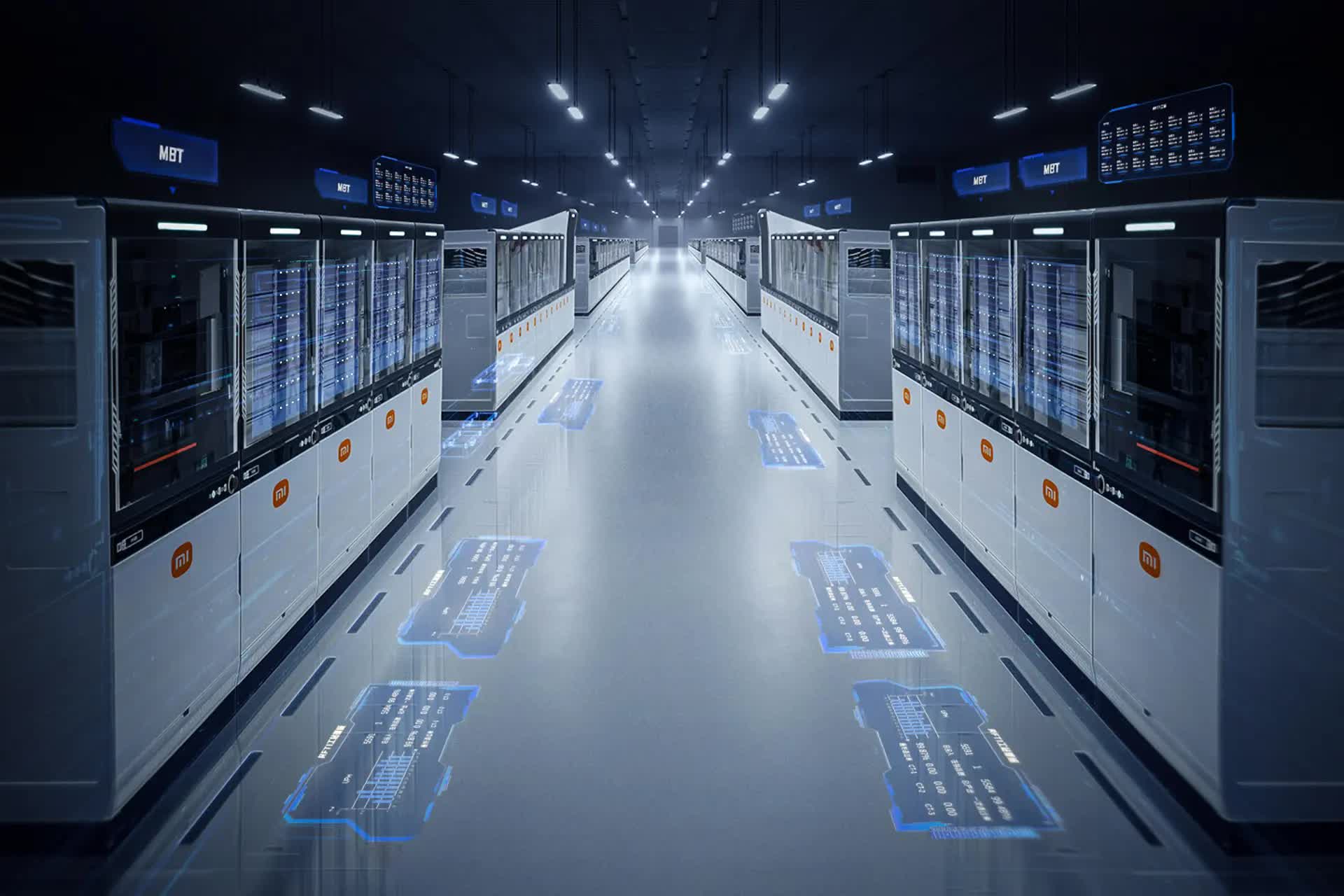In brief: In what could be a worrying sign of things to come, Chinese phone maker Xiaomi has built a new autonomous smart factory that can not only make 10 million handsets per year, but can also identify and correct production issues while optimizing the entire process.
Xiaomi CEO Lei Jun said the 860,000-square-foot facility, located in the Changping district on the northeast outskirts of Beijing, follows a lab-level smart factory built in 2019 that produced around 1 million phones per year – it handled the entire production of the Xiaomi Mix Fold.
The new facility is described by Jun as a truly automated mass-production factory. It features 11 production lines, able to produce the company's upcoming flagship MIX Fold 4 and the MIX Flip phones at a constant rate of one every few seconds.
Let me know in the comments what you're most curious about this Xiaomi Smart Factory. pic.twitter.com/5TU5ts9aMS
– Lei Jun (@leijun) July 8, 2024
The factory can operate 24 hours a day without people on the floor, writes Gizmochina, though the video shows a handful of people in what Jun calls the War Room, monitoring the Xiaomi Hyper IMP (Intelligent Manufacturing Platform).
These types of 24/7 factories aren't new, but Xiaomi's facility further reduces the need for human workers by using AI to identify and solve any issues that may appear during production.
According to a Weibo post (via New Atlas), the IMP is able to improve process flows, make decisions, and execute commands. It can also realize full-scenario digital management, from the procurement of raw materials to delivery. All of which makes it a factory that's able to "evolve" itself, according to the post.
Step into the heart of our factory, the "War Room". Our Xiaomi Hyper IMP (Intelligent Manufacturing Platform) is the brain of the operations, proactively solving issues and optimizing production.ð pic.twitter.com/6ZWhOm5wle
– Lei Jun (@leijun) July 9, 2024
Robots have been replacing factory workers for a couple of decades now; one of the largest cuts came in 2016 when Foxconn reduced its workforce by 60,000 by swapping them out for unpaid machines that toil 24/7. But Xiaomi's smart factory takes automation to the extreme by potentially replacing those who would diagnose or fix problems with the production and help optimize processes.
It's not just manufacturing plants where robots are taking human jobs. Amazon has recently started ramping up the use of autonomous machines in its fulfillment centers and warehouses, from 350,000 robots in 2021 to more than 750,000 by June 2023.
In October last year, the tech giant announced Digit, a 5-foot 9-inch 143-pound robot from Agility Robotics, was being deployed to warehouses. The two-legged machine can walk forward, backward, and sideways; squat and bend; and move, grasp, and handle items using its arm/hand-like clasps. It can imitate almost everything that a human can do, without needing to perform bodily functions or take time off due to stress.
